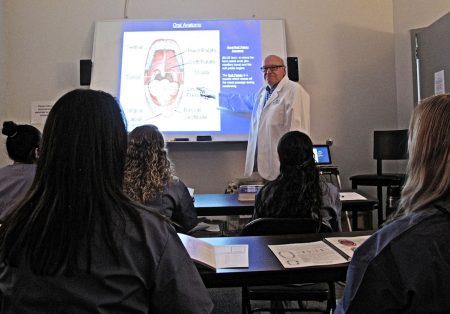
Dental Assisting in Rural vs. Urban Offices: What’s the Difference?
Author: Dr. Casey Hart
If you’re exploring a career as a dental assistant, you may wonder how the job looks in different settings. One of the biggest differences in the field is whether you work in a rural dental office or an urban dental office. Each environment offers unique opportunities, challenges, and career growth potential. Understanding these differences can help you decide which path best fits your goals in the dental assisting career field.
1. Practice Size and Team Structure
Urban Dental Offices
In cities, dental practices are often larger and may include multiple dentists, specialists, and a full team of support staff. As a dental assistant in an urban office, you’ll likely have a more specialized role, such as chairside assisting, sterilization, or lab coordination. This focused experience can help you master certain skills and procedures more quickly.
Rural Dental Offices
In a rural setting, practices are typically smaller, which means dental assistants wear many hats. You may assist chairside, handle scheduling, manage supplies, and even help with basic lab work, all in the same day. This variety can help you gain a broad skill set early in your career.
2. Patient Demographics and Needs
Urban Dental Offices
Patients in urban areas are often more diverse, with a mix of families, professionals, and individuals seeking everything from preventive care to cosmetic procedures. Dental assistants in urban settings often work with advanced treatments and technologies, supporting a wide range of patient needs.
Rural Dental Offices
In rural communities, patients may have fewer options for specialty care. This means that general dentists and their dental assistants often provide a broader scope of services, from fillings and extractions to dentures. Preventive care is especially important, as rural patients may face more barriers to consistent dental visits.
3. Technology and Resources
Urban Dental Offices
City-based practices often invest in the latest dental technology, such as digital scanners, 3D imaging, and CAD/CAM systems. Working as a dental assistant in an urban office can give you hands-on experience with these advanced tools, making your skills highly competitive in the job market.
Rural Dental Offices
While many rural offices are modern and well-equipped, some may have fewer high-tech resources due to budget or location. This gives dental assistants in rural offices the chance to strengthen core skills and adapt to different treatment situations without relying heavily on technology.
4. Pace and Work Environment
Urban Dental Offices
Dental assistants in urban areas often work in fast-paced environments with high patient volume. Strong organizational skills and the ability to multitask are essential.
Rural Dental Offices
The pace in rural practices may be steadier, allowing for more personal interaction with patients. Many dental assistants in rural offices enjoy building long-term relationships and being part of a close-knit community.
5. Career Growth Opportunities
Urban Dental Offices
Urban areas often offer more access to continuing education programs, networking opportunities, and career advancement options with specialty practices. If you want to move into expanded functions or explore different specialties, working in a city-based office may open more doors.
Rural Dental Offices
Career growth in rural practices may be more limited geographically, but the broad hands-on experience you gain can be a strong advantage if you relocate or apply for higher-level dental assisting roles.
Choosing the Right Fit
Which environment is right for your dental assisting career?
-
If you thrive in a fast-paced setting with advanced technology, an urban dental office may be ideal.
-
If you value variety, strong patient relationships, and a wide range of skills, a rural dental office could be the better fit.
Takeaway: Whether you work in a rural community or a busy city, dental assistants play a vital role in keeping patients healthy and confident in their smiles. Both paths offer rewarding and stable dental assisting jobs, the key is choosing the environment that aligns with your strengths and goals.
